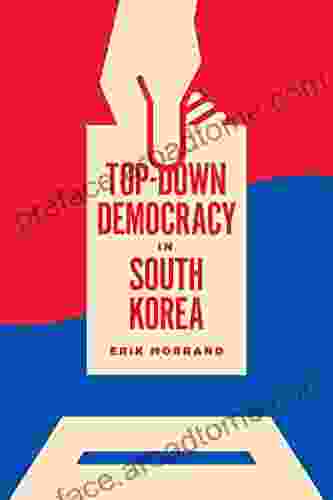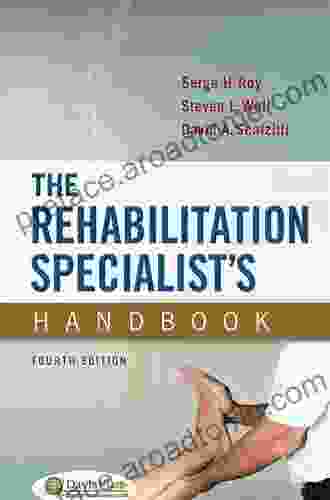Top-Down Democracy in South Korea: A Critical Examination

5 out of 5
| Language | : | English |
| File size | : | 4534 KB |
| Text-to-Speech | : | Enabled |
| Screen Reader | : | Supported |
| Enhanced typesetting | : | Enabled |
| Print length | : | 210 pages |
South Korea has long been hailed as a model of economic success and democratization. However, beneath the surface, the country's political system is characterized by a number of contradictions and challenges. One of the most striking features of South Korean democracy is its top-down nature, in which power is concentrated in the hands of a small number of elites.
This book explores the concept of 'top-down democracy' in South Korea, examining its historical roots, institutional design, and implications for political participation and accountability. It argues that top-down democracy in South Korea is a product of a number of factors, including the country's authoritarian past, the dominance of the ruling party, and the weakness of civil society.
The book is divided into three parts. Part I provides a historical overview of the development of top-down democracy in South Korea. Part II examines the institutional design of the country's political system, focusing on the role of the presidency, the legislature, and the judiciary. Part III assesses the implications of top-down democracy for political participation and accountability, and explores the prospects for reform.
Part I: Historical Roots
The roots of top-down democracy in South Korea can be traced back to the country's authoritarian past. After the Korean War, South Korea was ruled by a series of military dictatorships that suppressed political dissent and concentrated power in the hands of the military.
In 1987, South Korea transitioned to democracy, but the legacy of authoritarianism continued to shape the country's political system. The ruling party, the Grand National Party (GNP),emerged as the dominant force in politics, and the presidency remained a powerful institution.
The GNP's dominance was due in part to the country's electoral system, which favors large parties. The GNP also benefited from the weakness of civil society in South Korea. Civil society organizations were suppressed under the military dictatorships, and they have struggled to rebuild their strength since democratization.
Part II: Institutional Design
The institutional design of the South Korean political system reinforces the country's top-down nature. The presidency is a powerful institution, with the president having the authority to appoint the prime minister and other cabinet members, as well as to veto legislation.
The legislature is relatively weak in South Korea. The National Assembly has the power to pass laws, but it is often overshadowed by the presidency. The judiciary is also relatively weak, and it has been criticized for its lack of independence.
The combination of a strong presidency, a weak legislature, and a weak judiciary has created a political system in which power is concentrated in the hands of a small number of elites.
Part III: Implications for Political Participation and Accountability
The top-down nature of South Korean democracy has a number of implications for political participation and accountability. First, it limits the ability of citizens to participate in the political process. Second, it reduces the accountability of elites to the public.
The limited ability of citizens to participate in the political process is due to a number of factors, including the dominance of the ruling party, the weakness of civil society, and the lack of transparency in government decision-making.
The reduced accountability of elites to the public is due to the concentration of power in the hands of a small number of individuals, the lack of independent oversight of government, and the weakness of the media.
Top-down democracy in South Korea is a product of a number of factors, including the country's authoritarian past, the dominance of the ruling party, and the weakness of civil society. It has a number of implications for political participation and accountability, including limiting the ability of citizens to participate in the political process and reducing the accountability of elites to the public.
There are a number of reforms that could be implemented to address the challenges of top-down democracy in South Korea. These include strengthening civil society, increasing the transparency of government decision-making, and reforming the electoral system to make it more representative.
By implementing these reforms, South Korea can move towards a more participatory and accountable democracy.
5 out of 5
| Language | : | English |
| File size | : | 4534 KB |
| Text-to-Speech | : | Enabled |
| Screen Reader | : | Supported |
| Enhanced typesetting | : | Enabled |
| Print length | : | 210 pages |
Do you want to contribute by writing guest posts on this blog?
Please contact us and send us a resume of previous articles that you have written.
 Book
Book Novel
Novel Page
Page Chapter
Chapter Text
Text Story
Story Genre
Genre Reader
Reader Library
Library Paperback
Paperback E-book
E-book Magazine
Magazine Newspaper
Newspaper Paragraph
Paragraph Sentence
Sentence Bookmark
Bookmark Shelf
Shelf Glossary
Glossary Bibliography
Bibliography Foreword
Foreword Preface
Preface Synopsis
Synopsis Annotation
Annotation Footnote
Footnote Manuscript
Manuscript Scroll
Scroll Codex
Codex Tome
Tome Bestseller
Bestseller Classics
Classics Library card
Library card Narrative
Narrative Biography
Biography Autobiography
Autobiography Memoir
Memoir Reference
Reference Encyclopedia
Encyclopedia Emeran Mayer
Emeran Mayer Minerva Chaloping March
Minerva Chaloping March Donald Capps
Donald Capps Zachary Douglas
Zachary Douglas Norman Mailer
Norman Mailer Laura Bennett
Laura Bennett Dr Bruce Miller
Dr Bruce Miller Gil Raz
Gil Raz Douglas P Zipes
Douglas P Zipes Diana Palm
Diana Palm Dominic Green
Dominic Green Veronica Fowler
Veronica Fowler Shila Roysarpal
Shila Roysarpal Donnie Gladfelter
Donnie Gladfelter Felene M Cayetano
Felene M Cayetano Douglas Monroe
Douglas Monroe Andy Rae
Andy Rae Donald E Garrett
Donald E Garrett Margery Phelps
Margery Phelps Robert Masters
Robert Masters
Light bulbAdvertise smarter! Our strategic ad space ensures maximum exposure. Reserve your spot today!

 Davion PowellSolved Practical Problems In Transportation Engineering: An Invaluable Tool...
Davion PowellSolved Practical Problems In Transportation Engineering: An Invaluable Tool... Clayton HayesFollow ·4k
Clayton HayesFollow ·4k W.H. AudenFollow ·7k
W.H. AudenFollow ·7k Harold BlairFollow ·8.4k
Harold BlairFollow ·8.4k Derrick HughesFollow ·2.4k
Derrick HughesFollow ·2.4k Elliott CarterFollow ·19.9k
Elliott CarterFollow ·19.9k Kevin TurnerFollow ·18.6k
Kevin TurnerFollow ·18.6k Fyodor DostoevskyFollow ·17.3k
Fyodor DostoevskyFollow ·17.3k Edmund HayesFollow ·3.2k
Edmund HayesFollow ·3.2k

 Brandon Cox
Brandon CoxUnveiling the Secrets of Core Concepts: The Ultimate...
Are you ready to unlock the doors...

 Colt Simmons
Colt SimmonsUnlock Your True Potential: Uncover the Real Reasons For...
Embark on a...

 Ivan Turner
Ivan TurnerLove You Mom But You And Dad Are Getting a Divorce
A Heartfelt and...

 Ervin Bell
Ervin BellIntroducing Mouse Paul Moorcraft: A Captivating Tale of...
Embark on an Unforgettable Journey...

 Mike Hayes
Mike HayesBattling Obesity In Teens And Shaping The Future
The Growing...

 Yasushi Inoue
Yasushi InoueEmbark on a Culinary and Cultural Voyage: Delve into the...
A Tapestry of...
5 out of 5
| Language | : | English |
| File size | : | 4534 KB |
| Text-to-Speech | : | Enabled |
| Screen Reader | : | Supported |
| Enhanced typesetting | : | Enabled |
| Print length | : | 210 pages |










